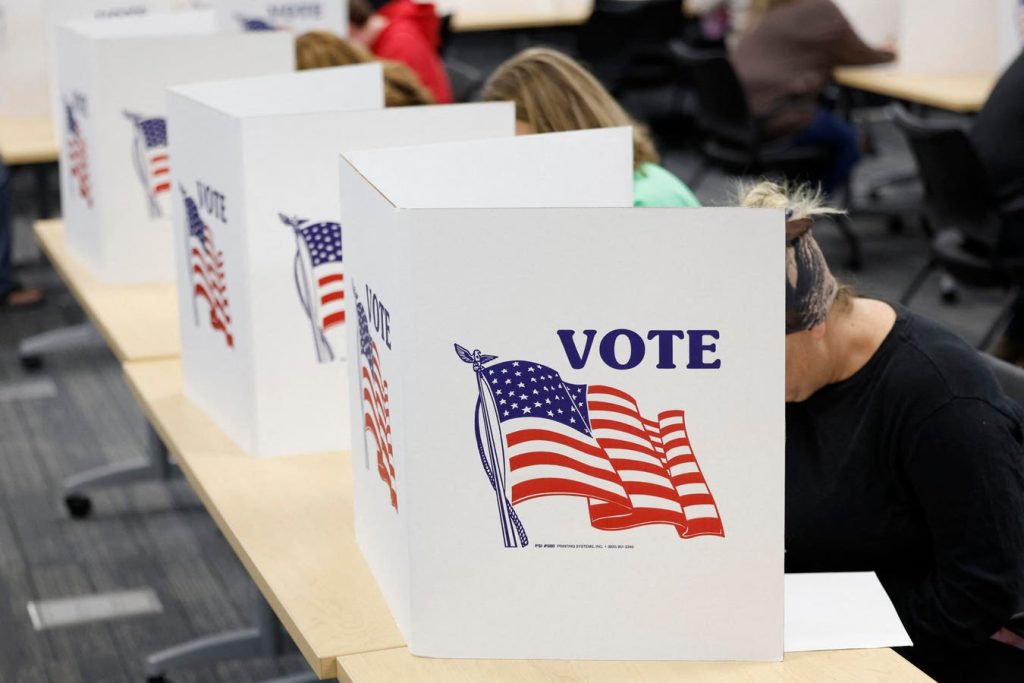US Sanctions Iranian and Russian Entities for 2024 Election Interference, Targeting Disinformation Campaigns and AI-Generated Deepfakes
Washington D.C. – The United States Treasury Department has announced sanctions against organizations in Iran and Russia, accusing them of attempting to interfere in the upcoming 2024 US presidential election. The sanctions target entities linked to the Islamic Revolutionary Guard Corps (IRGC) in Iran and the Russian Main Intelligence Directorate (GRU), specifically citing their involvement in spreading disinformation and exploiting artificial intelligence to manipulate public opinion and sow discord among the American electorate. The Treasury Department alleges these groups employed sophisticated tactics, including the creation and dissemination of deepfakes and the operation of a network of websites mimicking legitimate news outlets to spread their fabricated narratives. This move underscores the escalating concerns about foreign interference in democratic processes and the increasing use of advanced technology to manipulate public discourse.
The sanctions focus on two organizations: the Cognitive Design Production Center, a subsidiary of the IRGC, and the Moscow-based Center for Geopolitical Expertise, founded by prominent Russian ultranationalist ideologue Aleksandr Dugin. The Treasury Department accuses the Iranian entity of orchestrating influence operations aimed at exacerbating socio-political tensions within the US, while the Russian organization is accused of leveraging generative AI tools to create and disseminate disinformation targeting election candidates. The Treasury also highlighted the manipulation of a video to generate “baseless accusations” against a 2024 vice-presidential candidate, although they declined to specify which candidate was targeted. These actions, according to the Treasury Department, represent a deliberate attempt to undermine the integrity of the US electoral process and erode public trust in democratic institutions.
The imposed sanctions freeze all US-held assets belonging to the designated entities and individuals, including Aleksandr Dugin, director of the Center for Geopolitical Expertise. Furthermore, the sanctions prohibit any US individuals or entities from engaging in transactions with the sanctioned parties. This includes the provision of funds, goods, or services, effectively isolating them from the US financial system and limiting their ability to operate internationally. These measures build upon previous actions taken by the US government to counter foreign interference in elections and address malign influence campaigns originating from both Iran and Russia, signaling the US government’s ongoing commitment to safeguarding its democratic processes.
The Treasury Department’s announcement comes amid heightened awareness of foreign interference efforts targeting the 2024 elections. Last summer, cybersecurity firm Recorded Future exposed a Russia-linked influence network utilizing fake websites and AI to sway public opinion. Subsequently, in October, the FBI and the Cybersecurity and Infrastructure Security Agency issued a joint warning about election interference tactics, highlighting the impersonation of established media outlets like the Washington Post and Fox News, the proliferation of fabricated news websites, and the employment of paid influencers to spread disinformation. This pattern of deceptive tactics underscores the evolving nature of foreign interference and the need for continuous vigilance to counter these threats.
The State Department echoed the Treasury’s concerns, emphasizing the US government’s commitment to holding state-sponsored actors accountable for undermining public trust in democratic institutions. Spokesperson Matthew Miller reaffirmed the United States’ resolve to closely monitor and counter any attempts by malicious actors to interfere with the integrity of US elections. This coordinated response from various government agencies demonstrates a unified front against foreign interference and a commitment to protecting the democratic process.
These sanctions underscore the growing challenge posed by foreign interference in elections, particularly in the digital age, where disinformation and AI-generated content can spread rapidly and manipulate public opinion. The US government’s actions aim to deter further interference and send a strong message that such activities will not be tolerated. While the ultimate effectiveness of sanctions remains a subject of debate, the Treasury Department maintains that the goal is to induce a change in behavior rather than merely to punish, hoping to discourage future interference attempts and protect the integrity of the democratic process. The 2024 election cycle will likely serve as a testing ground for the efficacy of these measures in countering sophisticated foreign interference operations.














